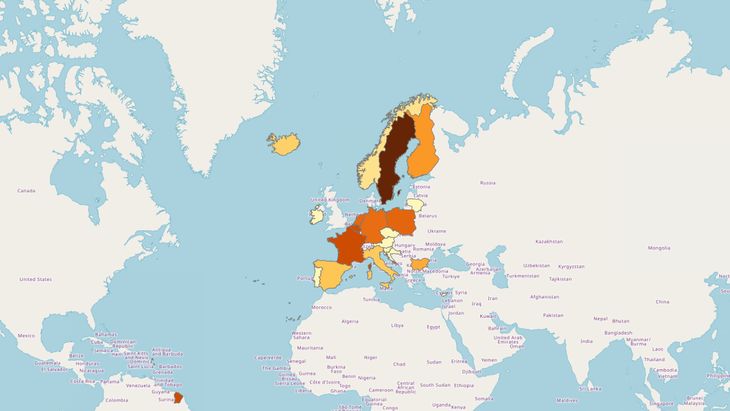The European Commission has granted more than 3.6 billion euro for 41 large-scale projects in the field of clean technologies, which are to be financed through the EU Innovation Fund, according to a press release from the Community Executive.
Focusing on the REPowerEU plan and phasing out European fossil fuel imports from Russia, these projects cover a wide range of industries such as cement, steel, advanced biofuels, renewable aviation fuels, wind and solar energy and hydrogen from renewable sources and its derivatives. The financing will contribute to the greening of some important sectors of the European economy, especially those that are difficult to decarbonize, according to Agerpres.
The selected projects are located in 15 EU member states: Austria, Belgium, Croatia, Czech Republic, Denmark, Finland, France, Germany, Greece, Ireland, Italy, the Netherlands, Portugal, Spain and Sweden, as well as in Norway. All supported projects will come into operation before 2030 and should avoid 221 million tons of CO2 emissions in the first 10 years of operation.
The 41 projects were selected following the third large-scale call for proposals, which covered four themes: “general” decarbonisation; “the electrification of industry and hydrogen”; “production of clean technologies”, as well as “medium-sized pilot projects”.
Within the theme of “general” decarbonization, there are eight projects worth 1.4 billion euros. These include three projects originating from refineries and five projects from the cement and lime sector and are located in Belgium, Croatia, Germany, Greece, the Netherlands, Portugal and Sweden.
Within the “electrification of industry and hydrogen” theme, there are 13 projects worth almost 1.2 billion euros. Among them are six projects on the production of hydrogen from renewable sources, as well as seven projects on the use of hydrogen in different sectors: the chemical industry, refineries and steel. The projects are located in Austria, Belgium, France, Germany, the Netherlands, Portugal, Spain, Sweden and Norway.
Within the “production of clean technologies” theme, there are 11 projects worth almost 800 million euros. These include four electrolyser production projects, four battery projects (including recycling) and three photovoltaic panel and module projects located in Belgium, Denmark, Germany, Finland, Spain, Sweden and Norway.
Within the “medium-sized pilot projects” theme, there are nine projects worth 250 million euros. Among them are two projects in the field of wind energy, two in the field of ocean energy, two in the field of chemical products and projects in the glass sector, on carbon capture and e-fuels. The projects are located in the Czech Republic, Denmark, France, Germany, Ireland, Italy, the Netherlands, Spain and Norway.
The selected projects were evaluated by independent experts based on five award criteria: the ability to reduce greenhouse gas emissions compared to traditional technologies; the level of innovation; operational, financial and technical maturity; scalability, as well as cost efficiency. In addition to the 41 projects selected for funding on Thursday, other promising but insufficiently mature projects will receive development assistance from the European Investment Bank. These will be announced in the last quarter of 2023. At the end of the year, the Commission will launch the next call for proposals for large-scale projects under the Innovation Fund, with an increased budget of 4 billion euro.
